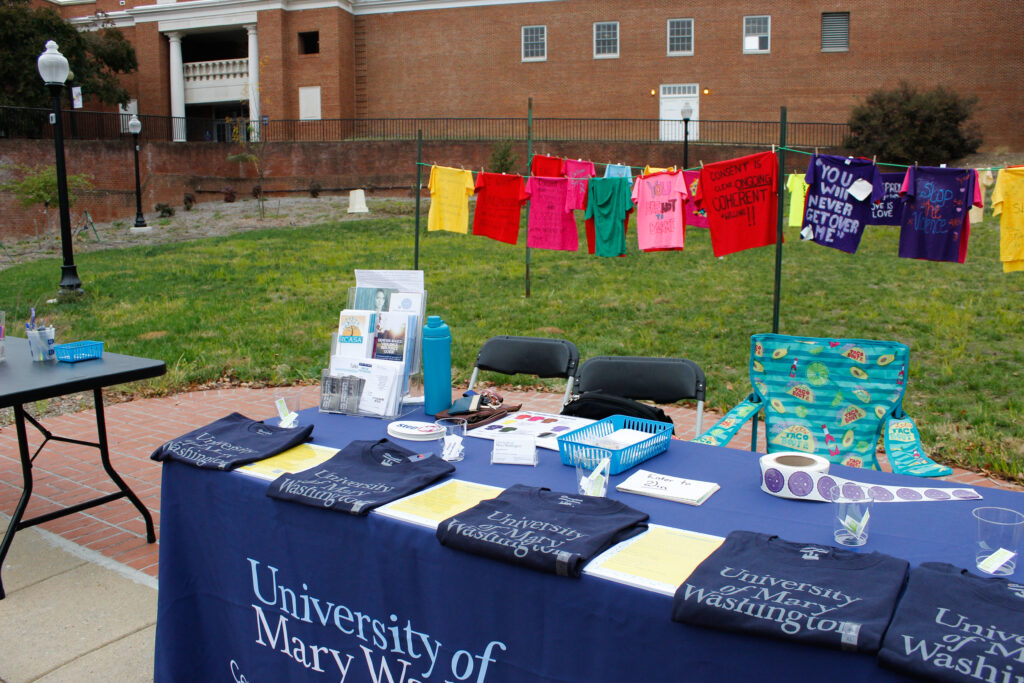Congress to vote on new Title IX regulations
4 min read
National Title IX regulations to be updated. | Erin Landfair, The Weekly Ringer
JOSEPHINE JOHNSON
Associate Editor
On June 23, the U.S. Department of Education issued new proposed Title IX regulations that, if codified into law, will impact UMW’s Title IX policies. Among the proposed changes are clear requirements that all sex discrimination complaints, rather than only formal complaints of sexual harassment, be given an impartial investigation, as well as expanding Title IX’s prohibition of discrimination based on sex to include sexual orientation and gender identity.
“Under the previous Administration’s regulations, some forms of sex-based harassment were not considered to be a violation of Title IX, denying equal educational opportunity,” reads the U.S. Department of Education’s 2022 Proposed Amendments to its Title IX Regulations. “The proposed regulations would cover all forms of sex-based harassment, including unwelcome sex-based conduct that creates a hostile environment by denying or limiting a person’s ability to participate in or benefit from a school’s education program or activity.”
All requirements are listed in the fact sheet for the U.S. Department of Education’s proposed amendments to its Title IX regulations.
These proposed changes are believed to be coming to UMW in the next year.
“The 2022-2023 academic year will be unique, as we expect changes to TITLE IX,” said Director of Compliance, Title IX Coordinator and ADA Coordinator Ruth Davison in a written statement to The Weekly Ringer. “We will assess our policy according to the new federal regulations and make changes accordingly.”
The proposal states that “the current regulations should be amended to provide greater clarity regarding the scope of sex discrimination, including recipients’ obligations not to discriminate based on sex stereotypes, sex characteristics, pregnancy or related conditions, sexual orientation, and gender identity.”
If the Department of Education’s proposed regulations are codified into law, Title IX will be required to conduct a “reliable and impartial” investigation of all sex discrimination complaints. Title IX is currently only required to investigate formal complaints of sexual harassment.
“I think having the requirement that all complaints are to be investigated is a bit of a mixed issue,” said Talyn Derflinger, a senior psychology and women’s, gender and sexuality studies double major. “On one hand it will speed up the process (Title [IX] investigations can take a while I was in one that lasted over 9 months from the time of the original complaint). The time commitment to investigations is difficult, which I think is why most of UMW’s Title IX investigations lead to ‘informal resolutions.’”
In the proposed regulations, schools must have the option to offer informal resolutions for resolving complaints, but the complainant’s and respondent’s participation in an informal resolution must be voluntary. For cases in which an employee is accused of sex discrimination against a student, informal resolution is not permitted.
The proposal also stipulates that complainants and respondents must be treated equitably, a school may not impose disciplinary sanctions against a student unless it determines that sex discrimination has occurred and a school’s grievance procedures must give the parties equal opportunity to present evidence. The regulations will also specify that a live hearing is not necessary for evaluating evidence.
“I believe all of these changes are essential to the fair treatment of all persons involved. This also leads to fewer abusers and harassers walking free among those that they harmed,” said junior studio art and religious studies double major Jenna Montijo. “These regulations will most definitely improve Title IX.”
These new rules have been subject to controversy, with some believing that rights are being revoked from those accused of sexual misconduct, according to an article from Inside Higher Ed.
However, senior communication and digital studies major Erin Lutz does not believe false reporting will be a major issue.
“It helps to look into everything because you never know,” they said. “People don’t make [claims] lightly, because that’s a pretty heavy accusation.”
Freshman theatre major Ryder Ward shares a similar opinion.
“I think most claims that come forward are true, so the likelihood of a false accusation is minimal,” said Ward. “I understand where others are coming from with that but having to file a formal complaint can be a lengthy process and can sometimes be traumatizing for the victim. This can help people to get immediate action taken against the person who hurt them.”
Aside from possible federal updates, Davison shared a few of UMW Title IX’s fall goals in a September Board of Visitors meeting. Title IX hopes to take on more personnel including investigators, decision makers, an appeal officer and an advisor for complainants and respondents. These new hires will be from within UMW, as well as external consultants.
“In addition to qualified internal staff to serve in the various Title IX roles, UMW is currently contracting for personnel on an as needed basis,” said Davison.
UMW Title IX Compliance is also planning its yearly review of the Policy on Sexual and Gender-Based Harassment and Other Forms of Interpersonal Violence. The policy was adopted in November of 2011 and last revised in March of 2022.
The public comment period on the proposed regulations ended in mid-September, and the Department of Education is working to take comments into consideration and respond in a written format. According to an article from Inside Higher Ed, the regulations received 235,000 comments. After the comments are taken into consideration, the congressional voting process will begin, which can take up to a year. Once the regulations are codified into law, UMW’s Office of Title IX will make changes to the Prohibited Conduct Policy, which will then be presented to the UMW Board of Visitors for approval.
“I definitely think they are necessary,” Lutz said of the proposed regulations. “They should have come earlier, but it’s definitely a step in the right direction.”


